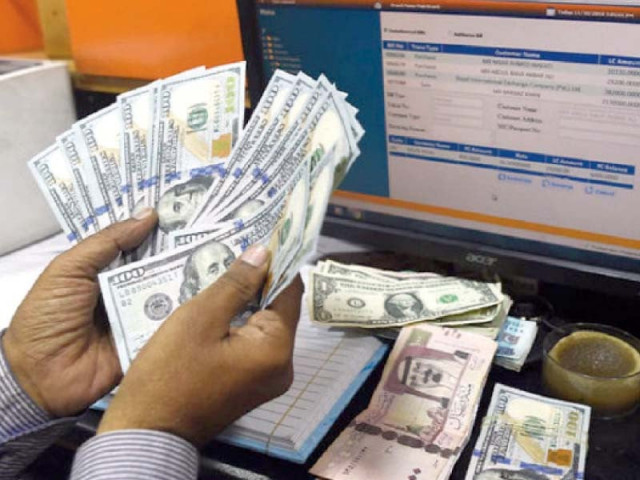Govt waives taxes on foreign loans
Cabinet writes-off income tax on over $3b worth loans lent during past one year

The federal cabinet has waived income tax on profits that foreign commercial banks are earning on over $3 billion worth of loans that they lent to Pakistan during the past one year.
The government has obtained these loans to retain foreign exchange reserves in double digits that could have slid below $10 billion after repayments of foreign debt, including to Saudi Arabia.
The cabinet has approved a summary to waive taxes on foreign commercial loans, Federal Minister for Science and Technology Fawad Chaudhry confirmed to The Express Tribune.
The cabinet granted the ex-post facto approval to write-off taxes, as the finance ministry has already obtained these loans from eight commercial banks since February last year.
These include Chinese commercial loans, taken to repay the $3 billion Saudi Arabia debt ahead of schedule. Out of $3.04 billion loans, to be precise, an amount of $2 billion has been given by China. China also extended $1.5 billion trade finance facility that Pakistan also used for Saudi debt repayment. This facility is booked on the central bank’s balance sheet.
In the past two months, the federal cabinet has exempted taxes on $5.5 billion worth of foreign borrowings, including $2.5 billion Eurobonds that have been borrowed at relatively higher interest rates.
The government took these loans after it failed to attract sufficient non-debt creating inflows, like enhancing exports and foreign direct investment for meeting its external financing requirements.
Read: Youth get Rs1.2b loans for starting business
The decision to forgo the tax was taken by the federal cabinet on Thursday.
The exact quantum of tax loss cannot be determined due to applicability of different bilateral avoidance of double taxation treaties.
The summary to exempt tax on interest income of the Credit Suisse AG, Dubai Islamic Bank, China Development Bank, Bank of China, Industrial and Commercial Bank of China, Emirates NBD, Ajman Bank and ECO Trade and Development Bank had been moved by the finance ministry.
The federal cabinet’s decision would directly benefit the banks that are earning higher interest rate at a time when the international borrowing cost remains at historically low levels due to abnormally low interest rates in the aftermath of the Covid-19.
The Ministry of Finance informed the federal cabinet that “foreign commercial loans are offered on the condition that taxes applicable in Pakistan will not be borne by the lenders”, showed the official documents.
The finance ministry said that the option available with the government is then to either bear the cost of these taxes or grant exemption.
Pakistan obtained $40 million from the ECO bank, $110 million from Ajman Bank, $500 million from Bank of China, $1 billion from China Development Bank and $500 million from the Industrial and Commercial Bank of China
The government took $405 million from Dubai Islamic Bank, $115 million from Credit Suisse and $370 million from Emirates NBD, according to the finance ministry.
Read more: PM tells SBP, NBP to ease housing loan process
Pakistan’s official foreign currency reserves - largely built by borrowings - have increased to $13.7 billion after receiving $500 million International Monetary Fund loan tranche. Another $2.5 billion loans will be received next week on account of Eurobonds, which will push the reserves to over $16 billion.
Pakistan’s current account remained in surplus during first eight months of the ongoing fiscal year on back of better inflows of remittances. However, the trade deficit - gap between exports and imports - peaked to $20.5 billion during the July-March period of this fiscal year. The pace of increase in imports was double the growth in exports.
The total public debt as of December has increased to Rs37.5 trillion, which is equal to 82.2% of the size of Pakistan’s economy, according to the Ministry of Finance. The share of external debt in total public debt has increased to 35.1% as of December, it added.
The World Bank has predicted that the public debt would jump to 94% of GDP by June.
The finance ministry said that in the first half of this fiscal year (July-December) there was a net increase of Rs1.1 trillion in public debt despite a gain of Rs706 billion due to appreciation of rupee against the US dollar and other currencies.
The ministry said that the key reason for the surge of public debt in the first half was Rs1.5 trillion worth of interest on debt and Rs307 billion increase in cash balance of the government.
The federal government also booked a primary budget deficit of Rs82 billion in the first half, according to the finance ministry.
Published in The Express Tribune, April 4th, 2021.
Like Business on Facebook, follow @TribuneBiz on Twitter to stay informed and join in the conversation.


















COMMENTS
Comments are moderated and generally will be posted if they are on-topic and not abusive.
For more information, please see our Comments FAQ